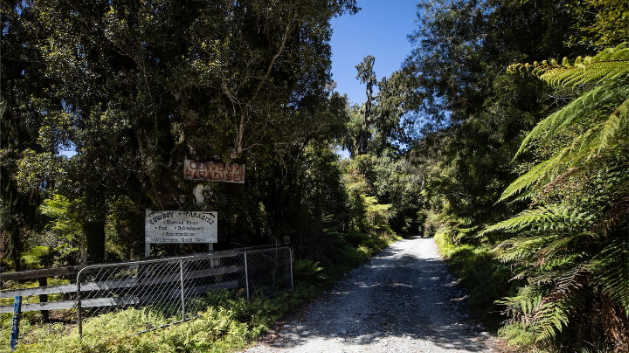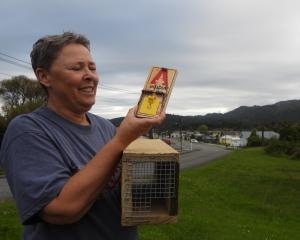
Cowboy’s Paradise owner Michael Kevin Milne, 68, and Ngahere man Anthony Wayne Harris, 77, are together facing 15 charges including cultivating cannabis and selling cannabis following a 2019 police raid at the property.
The Crown alleges the Milltown growing operation had been taking place since 2013.
It was netting $1 million for Milne annually, Crown prosecutor Cameron Stuart said during the opening of the case yesterday afternoon.
The Crown plans to call several witnesses over the week, including a forensic accountant who analysed cash deposits into Harris’ accounts totalling more than $460,000, and the police officer who set up hidden cameras around the Milltown property, which eventually led to the collapse of the operation in September 2019.
Stuart said hidden cameras were installed in the bush on Milne’s Cowboy Paradise property on July 16, 2019, and continued through to September as part of a covert operation.
Jurors heard Cowboy Paradise was a destination on the West Coast Wilderness Trail, halfway between Kumara and Hokitika.
It was owned and run by Milne, providing cyclists with accommodation and activities.
It was also the location of a "sophisticated, commercial cannabis growing operation" in a 12m by 20m bunker underground, the court heard.
The bunker was 240sqm inside — twice as big as the average New Zealand house — around the area of a tennis court.
It contained 12 growing bays, a large hydroponic system, fans and heat lamps, which allowed the defendant to grow cannabis throughout the year regardless of the season.
The amount of cannabis head the bunker could generate would be 136kg a year.
The Crown alleged Milne was growing cannabis at that scale and was able to generate revenue of $1m annually.
Harris lived in Blackball at the time. He was in regular contact with Milne.
A later search of his property found weapons, including a stun gun and pepper spray.
However, Harris’ lawyer Marcus Zintl claimed the weapons were for self-defence.
Stuart alleged Harris would drive from Greymouth to Canterbury on a weekly basis. He did this for several years.
A forensic accountant had looked at Harris’ bank accounts. While he was receiving superannuation and some other small legitimate deposits, 248 cash deposits were also received to a value of over $460,000 over seven years.
Put simply, the pair were drug dealers working and profiting together, Stuart claimed.
Evidence over the three-week course of the trial will include hidden camera footage.
It showed access to the bunker through a trap door in a shipping container above ground.
Between August 9 and 22, 2019, Milne was seen coming and going with various plastic containers, and at one point with a plastic bag full of what the Crown says was cannabis.
The same day, Harris’ phone was tracked going from Greymouth to Canterbury overnight and back.
A call was also tracked in September when police had started to search the properties.
Harris panicked and rang Milne, telling him to clear out the bunker — "get rid of everything essentially".
By the time police arrived to search the bunker formally, everything was gone and the bunker was clear, Mr Stuart said.
However, six "clone" plants were found in a shooting bay.
A local electrician who will be called as a witness said the generator powering the Milltown property was running at 52.54KW at a full load, which meant that the bunker was using the equivalent power consumption of a commercial building — "massive".
Large quantities of cash were also found at Harris’ property.
Zintl said Harris was 77 and a semi-retired gold prospector.
He did not dispute knowing Milne or knowing that he was growing cannabis. What was disputed was that he sold cannabis on Milne’s behalf or regularly transported it to Canterbury.
Milne’s defence chose not to give an opening address.
Proceedings continue today.
- Hokitika Guardian











